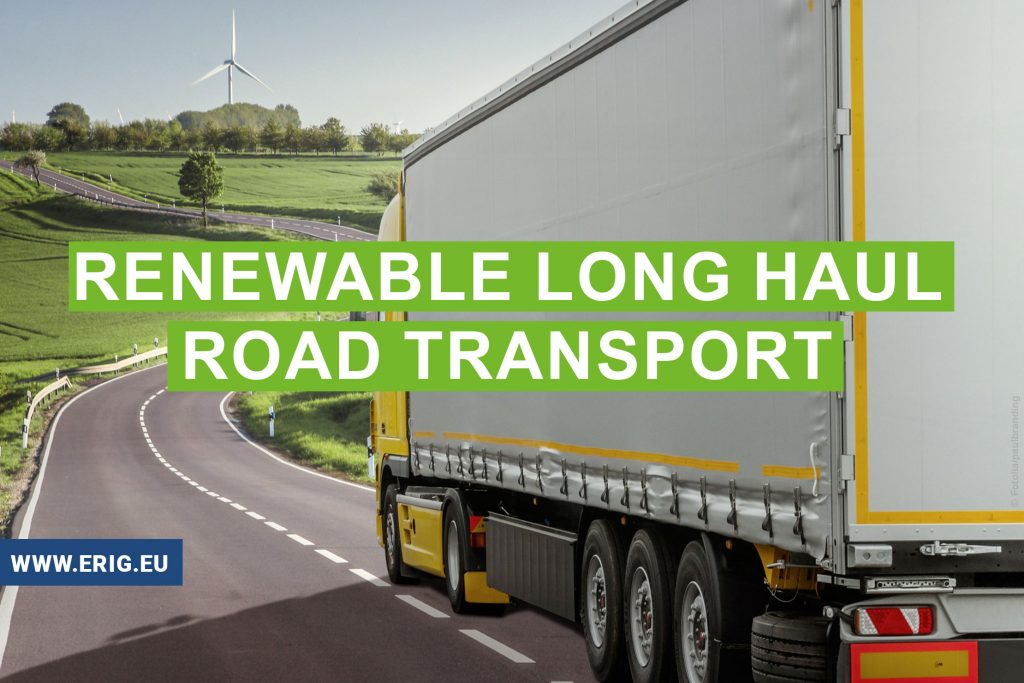KICK-Off meeting of the new ERIG study took place on June 9th, 2022
ERIG study “Renewable Long-Haul Road Transport Considering Technology Improvements and European Infrastructures”
Long haul road transport is one of the most difficult sectors to decarbonize. ERIG has launched a study to analyze means to reach short term green house gas reduction targets in long haul road transport considering existing infrastructures and technologies.
In study, Europe as a whole is considered, and representative European countries are analyzed in detail. Four renewable fuels and corresponding drive train technologies and infrastructure for trucks are considered: battery-electric, liquid fuels including e-fuels and HVO, hydrogen-electric and renewable methane (i.e. LBG, CBG). By evaluating four theoretical “Exclusive Scenarios” “All Battery-Electric”, “All Liquid Fuels”, “All Hydrogen” and “All Methane”, in which the complete CO2 reduction should be reached with one technology exclusively, the complete space of possible realistic scenarios will be defined. The analysis will reveal advantages and disadvantages of the individual technologies and their role in realistic scenarios, which can evolve over time. The objective is to prove that only the combination of the technologies gives a realistic perspective to reduce CO2 emissions in long-haul road transport with careful and objective quantitative and qualitative argumentation. The effect of availability and timing of such technologies with respect to quick wins and the overall CO2 budget will be considered.

This study is executed by the ERIG „Road Traffic“ research team consisting of OST (Ostschweizer Fachhochschule), EBI (Engler-Bunte-Institut, DVGW-Forschungsstelle am KIT) and JKU Linz Energie Institut Johannes-Keppler-Universtität Linz).

